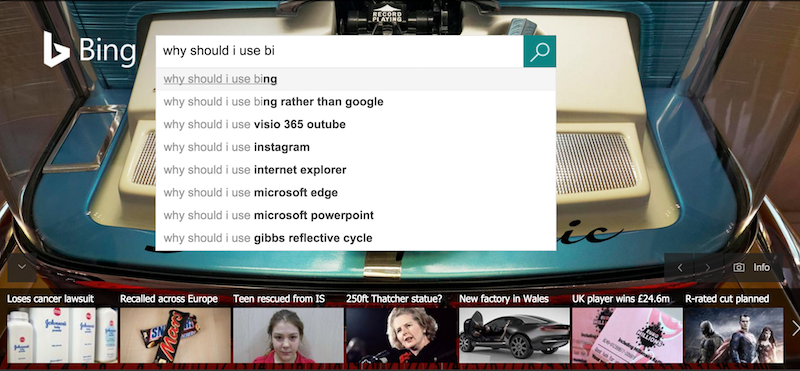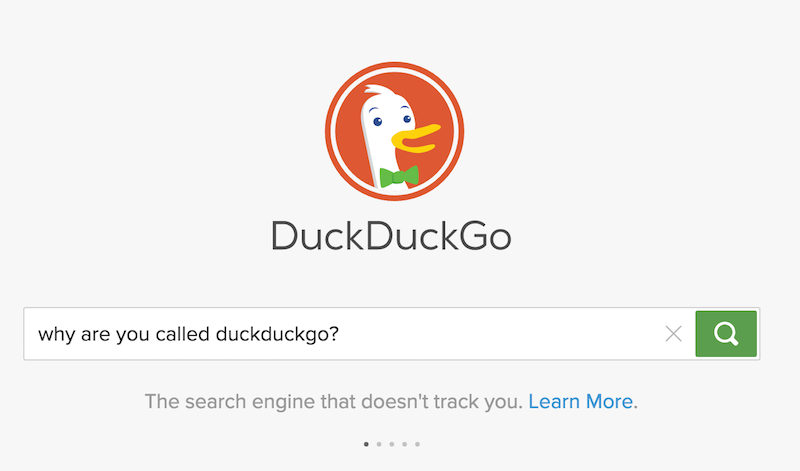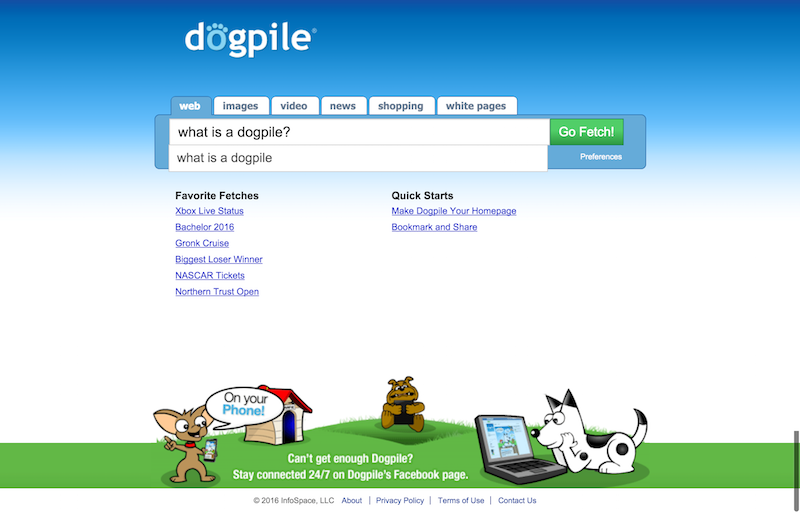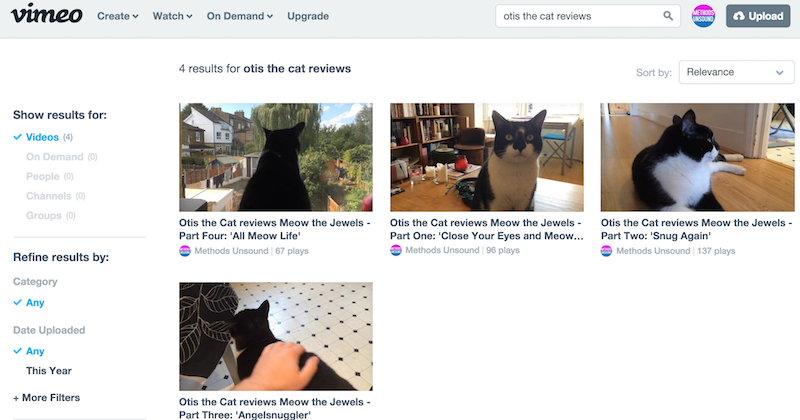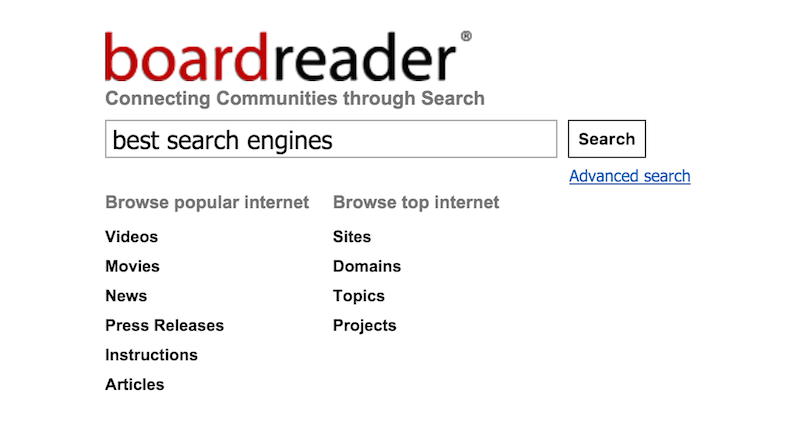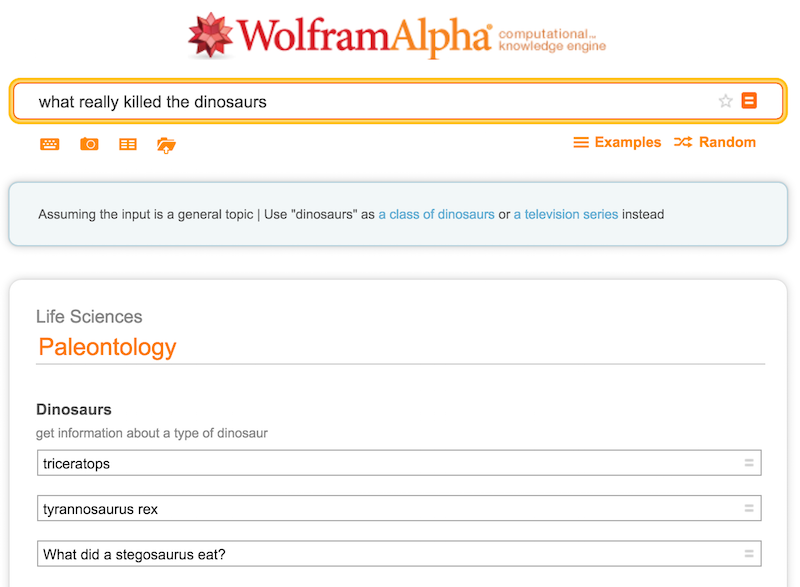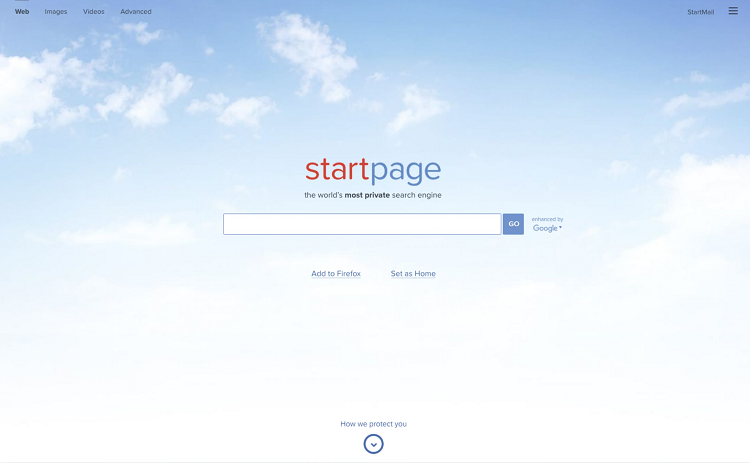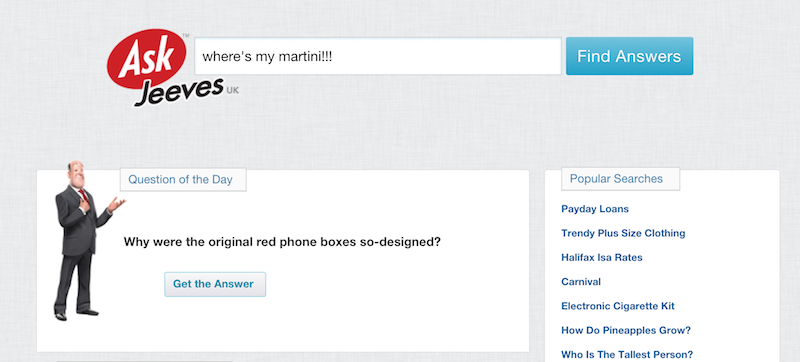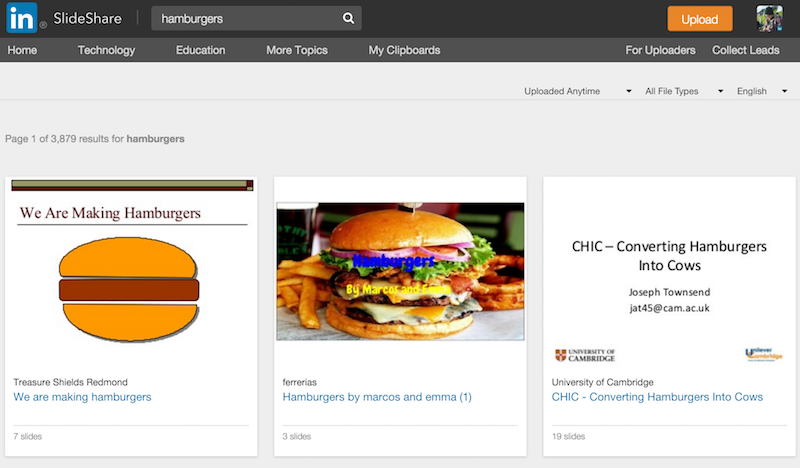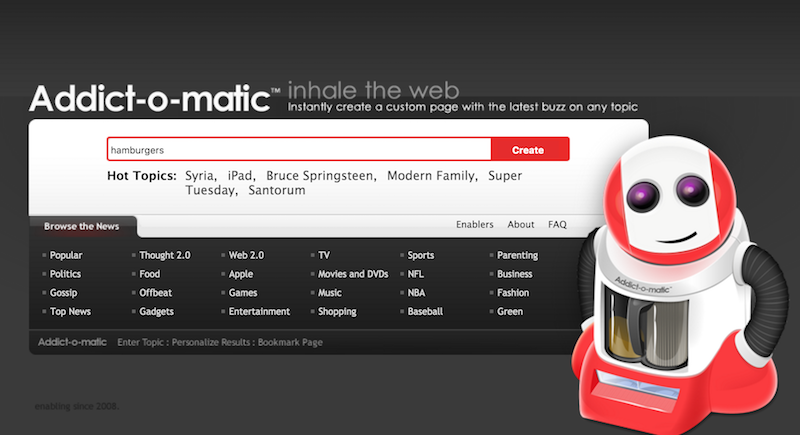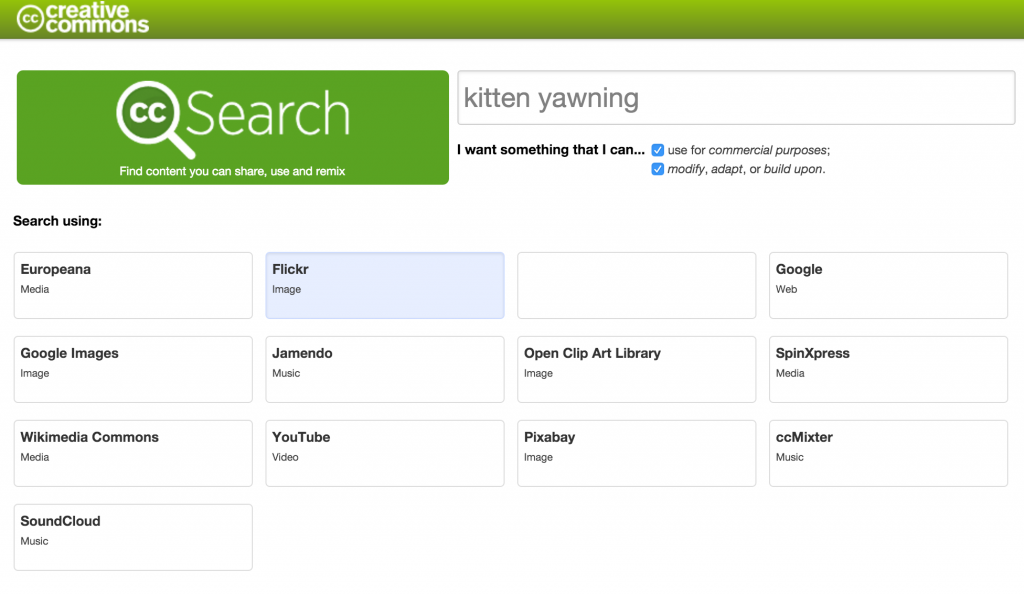Bing
Microsoft’s search engine is the second most popular search engine in the world, with 15.8% of the search market.
But why should you use Bing? Lifehacker has some great articles where they try to convince themselves as much as anyone else why Bing is a serious contender to Google. Plus points include:
- Bing’s video search is significantly better than Google’s, giving you a grid of large thumbnails that you can click on to play or preview if you hover over them.
- Bing often gives twice as many autocomplete suggestions than Google does.
- Bing can predict when airfares are about to go up or down if you’re searching for flights.
- Bing also has a feature where if you type linkfromdomain:[site name] it will highlight the best ranked outgoing links from that site, helping you figure out which other sites your chosen site links to the most.
Also note that Bing powers Yahoo’s search engine.
DuckDuckGo
The key feature of DuckDuckGo is that it doesn’t retain its users‘ data, so it won’t track you or manipulate results based on your behaviour. So if you’re particularly spooked by Google’s all-seeing, all-knowing eye, this might be the one for you.
There’s lots more info on DuckDuckGo’s performance here.
Quora
As Google gets better and better at answering more complicated questions, it will never be able to match the personal touch available with Quora.
Ask any question and its erudite community will offer their replies. Or you can choose from any similar queries previously asked.
Dogpile
Dogpile may look like a search engine you cobbled together with clip-art, but that’s rather the point as it pulls in and ‘curates’ results from various different engines including Google, Yandex and Yahoo, but removes all the ads.
Vimeo
Of course if you’re going to give up Google, then you’ll also have to give up YouTube, which can be a terrifying prospect. But there is an alternative. And a pretty good one at that… Vimeo. The professional’s choice of video-sharing site, which has lots of HD video and no ads.
Yandex
This is a Russian portal, offering many similar products and services as Google, and it’s the dominant search engine in Russia.
As you can see it offers results in a nice logical format, replete with favicons so you can clearly see the various channels for your branded queries.
Boardreader
If you want to get into the nitty-gritty of a subject with a variety of different points of view away from the major publications, Boardreader surfaces results purely from forums, message boards and, of course, Reddit.
WolframAlpha
WolframAlpha is a ‘computational knowledge engine’, or super clever nerd to you and me. Ask it to calculate any data or ask it about any fact and it will give you the answer. Plus it does this awesome ‘computing’ thing while it thinks about your answer (which can take a short while.)
It’s not always successful, you have to practice how to get the best from it. But at least it’s aware of the terrible 90s television show The Dinosaurs.
StartPage
Another search engine that puts privacy at the forefront, StartPage (originally Ixquick) was the first search engine to allow its users to search privately.
With StartPage, none of your details are stored (including your IP address) and no cookies are used, save for a single, anonymous cookie that’s used to remember your preferences. (For those who want to go “cookie-free”, StartPage has a URL generator alternative to save your settings).
Uniquely, StartPage also offers a proxy for those who want to not just search, but browse, the web in full privacy.
Ask.com
Oh look… Ask Jeeves is still around. Also he’s no longer a Wodehousian butler, but a computer generated bank manager. Weird.
It’s still a slightly mediocre search engine pretending to be a question and answer site, but the ‘Popular Q&A’ results found on the right hand side are very handy if Jeeves himself can’t satisfy your query. And what a good use of the right-hand side space, huh Google.
SlideShare
SlideShare is a really handy place to source information from presentations, slide decks, webinars and whatever else you may have missed from not attending a conference.
You’ll also be surprised what information you can find there.
Addict-o-matic
“Inhale the web” with the friendly looking hoover guy by creating your own topic page, which you can bookmark and see results from a huge number of channels in that one page (including Google, Bing News, Twitter, YouTube, Flickr).
Creative Commons Search
CC Search is particularly handy if you need to find copyright free images for your website (as discussed in this post on image optimisation for SEO). Just type your query in then click on your chosen site you want to search.
Giphy
Because really, when it comes down to it, we could imagine a worse dystopian future than one in which we all communicate entirely in Gifs.
